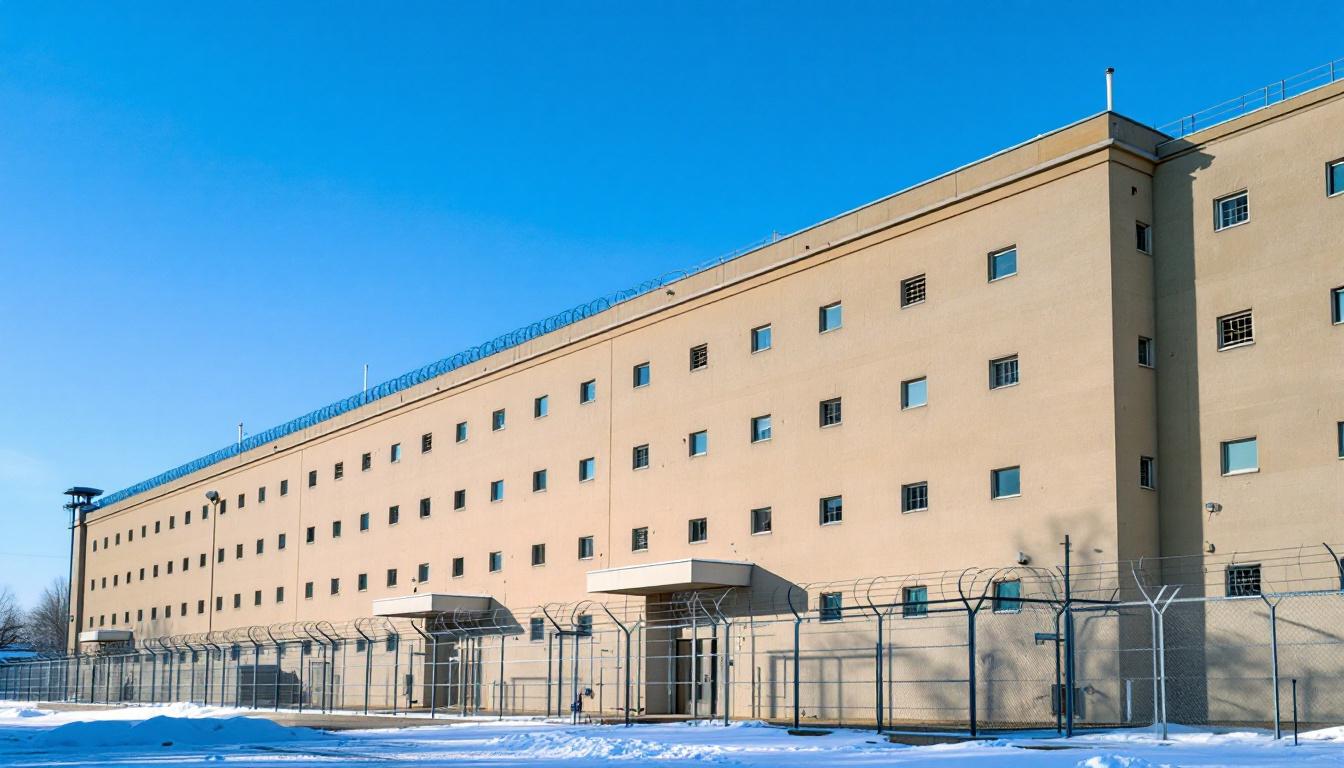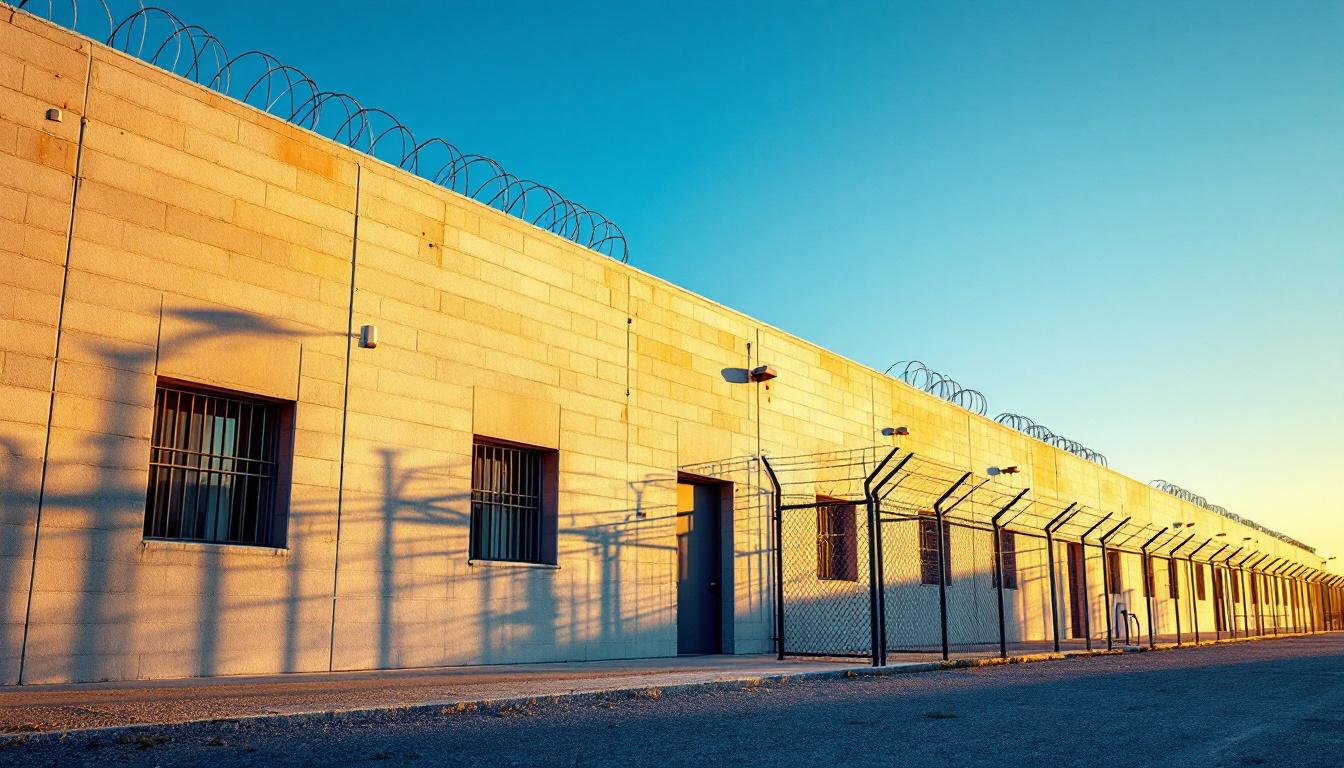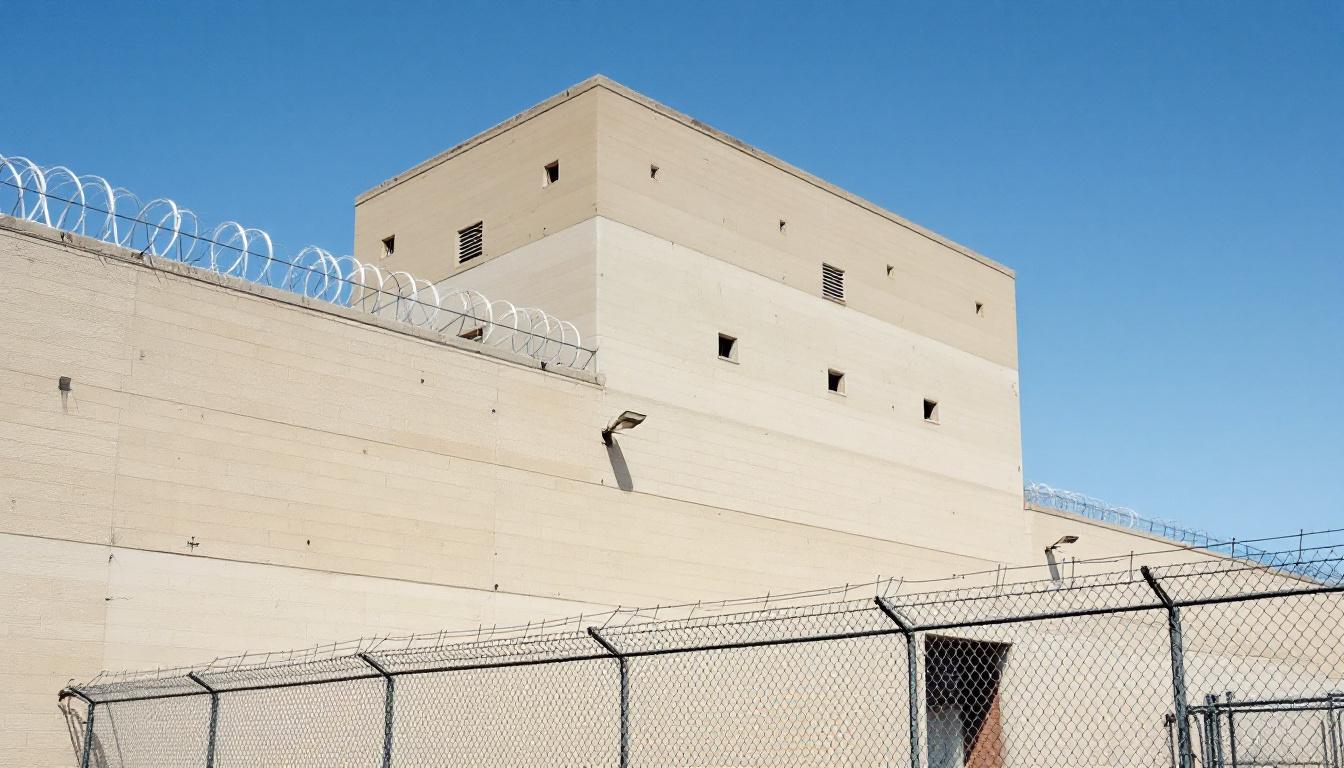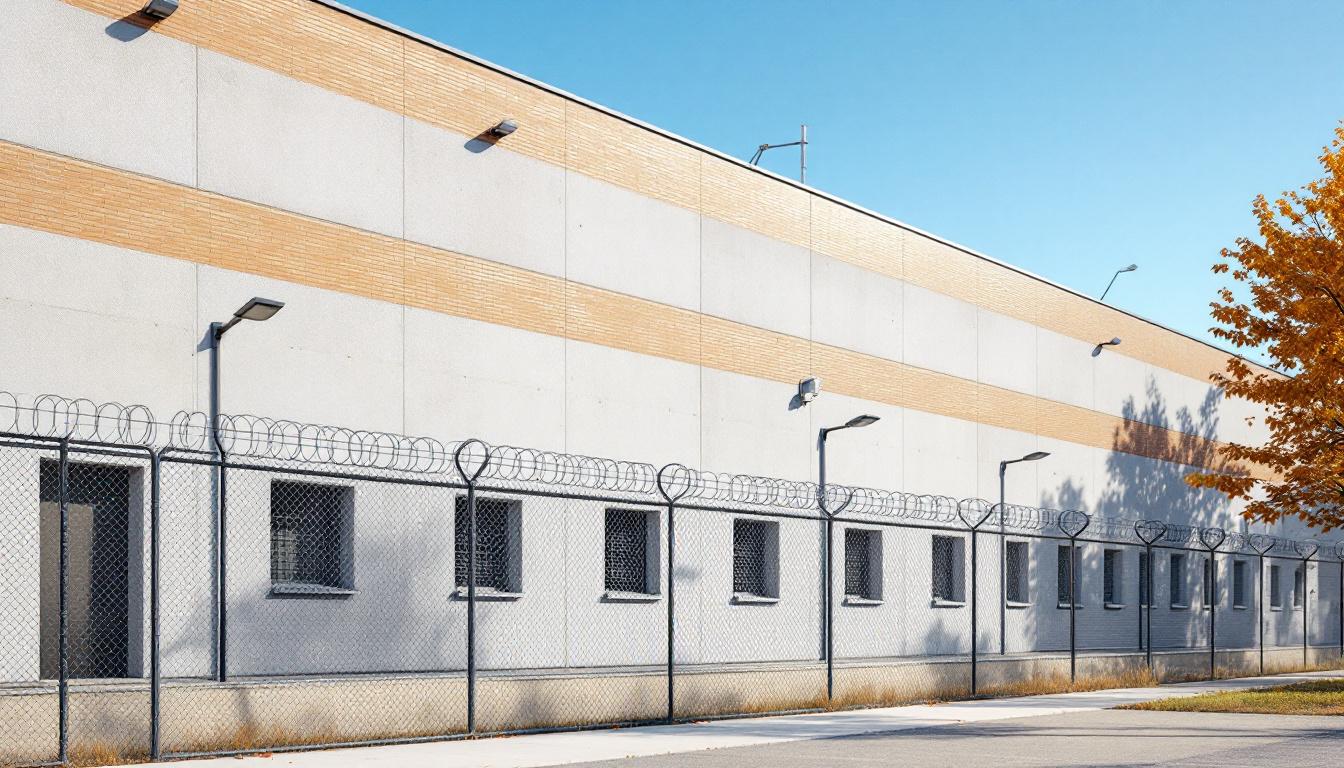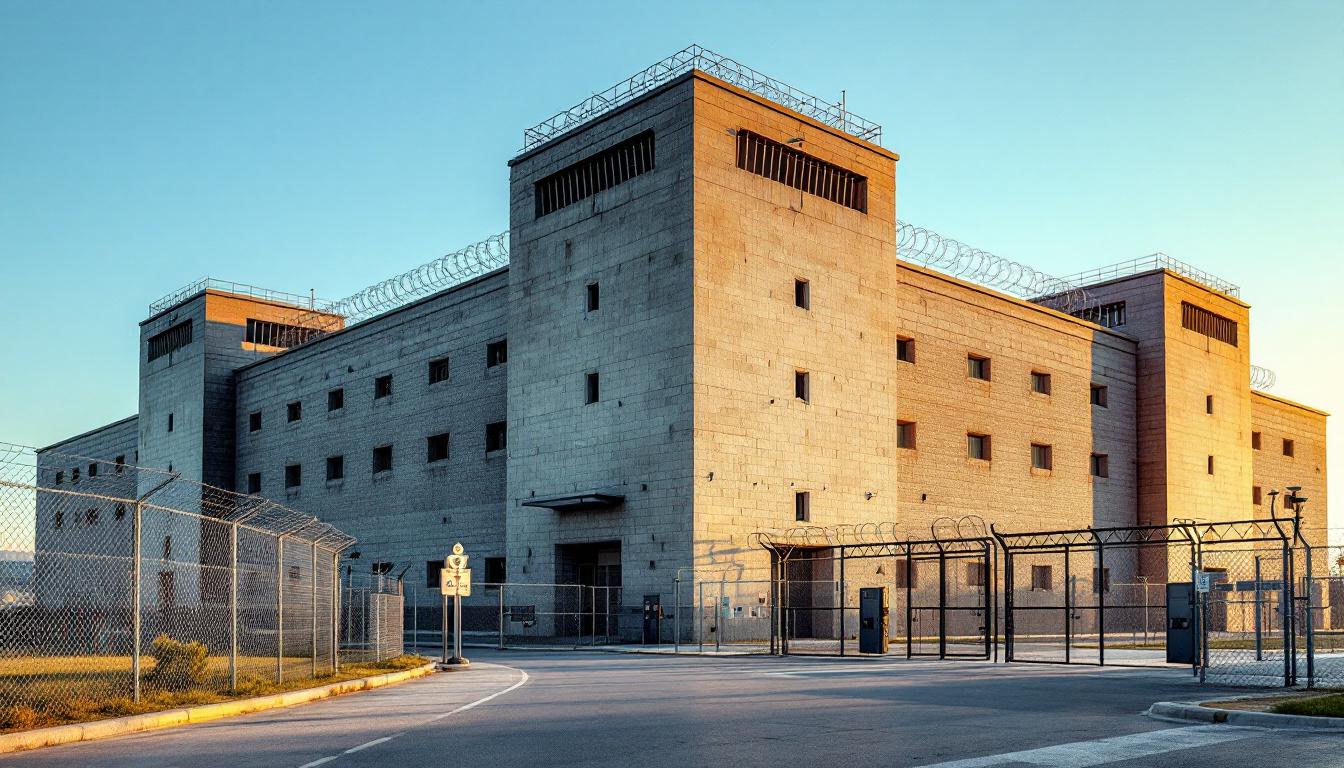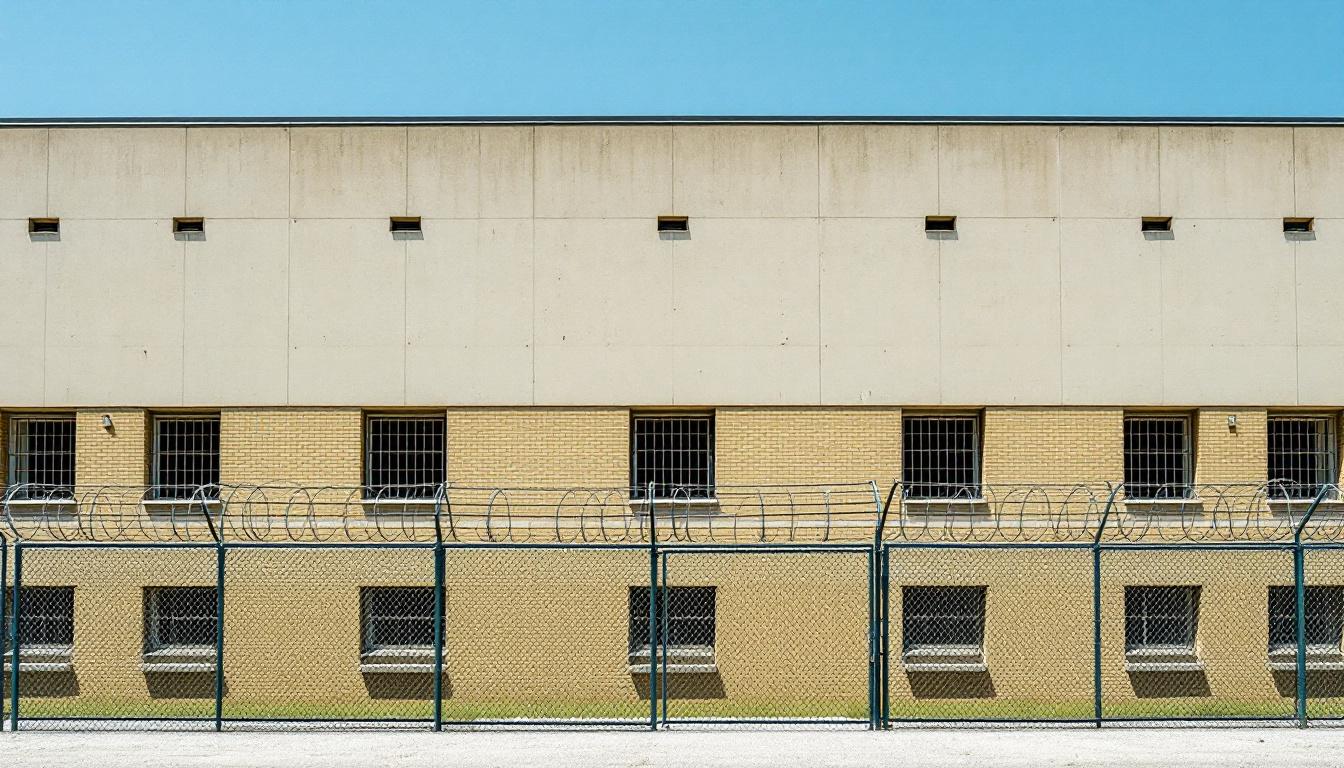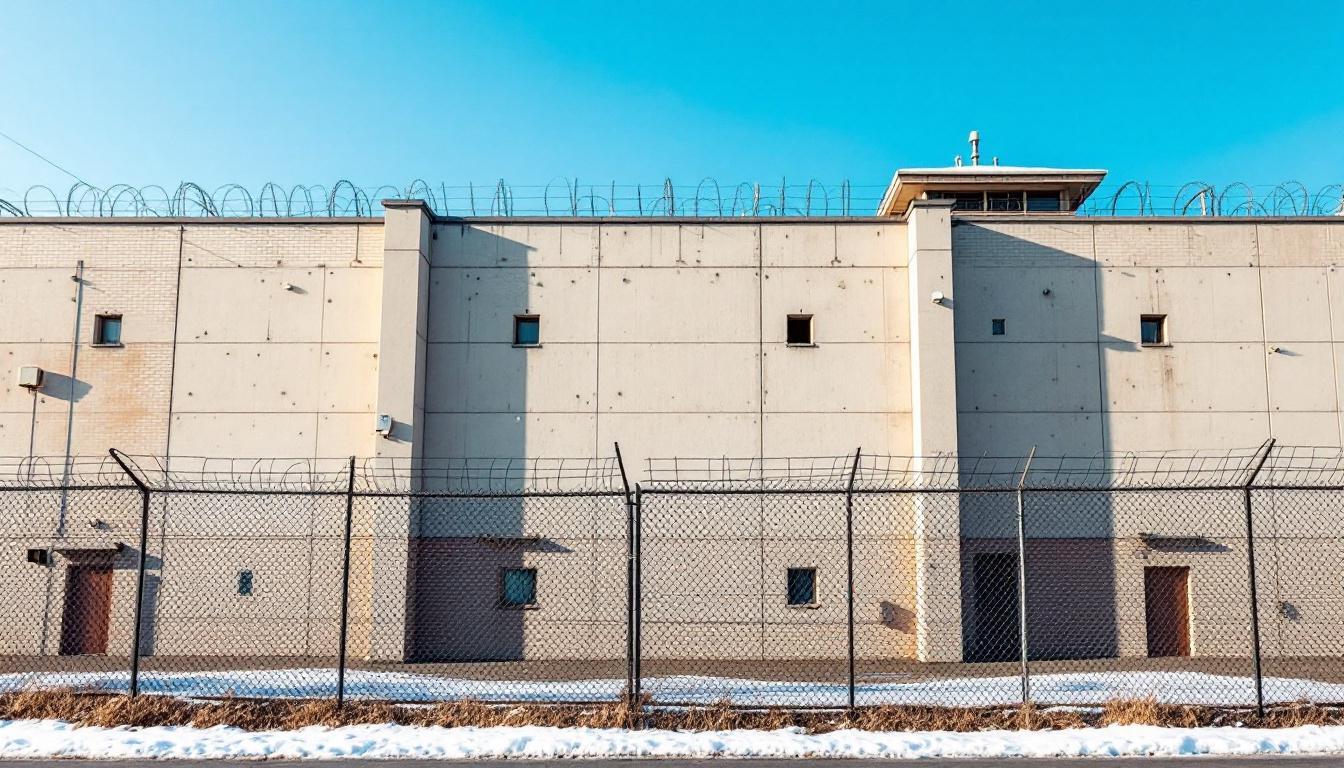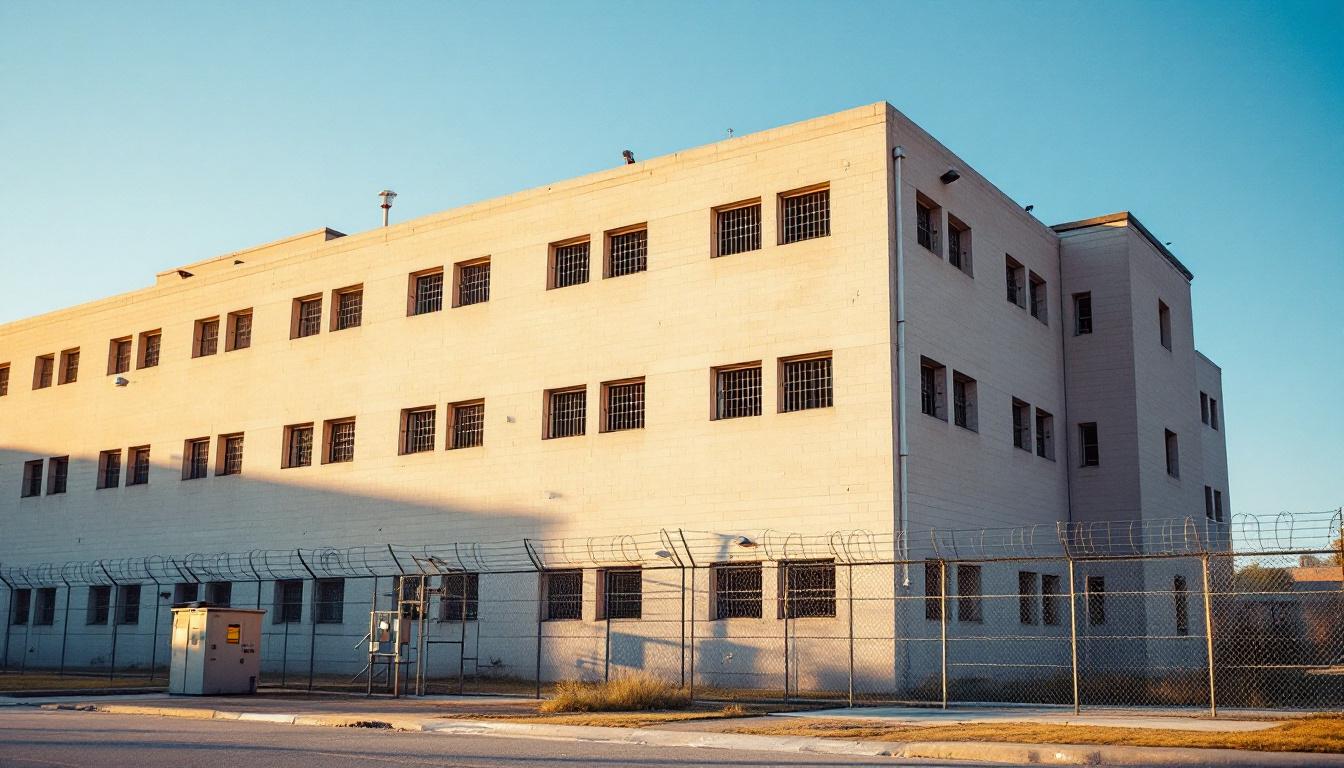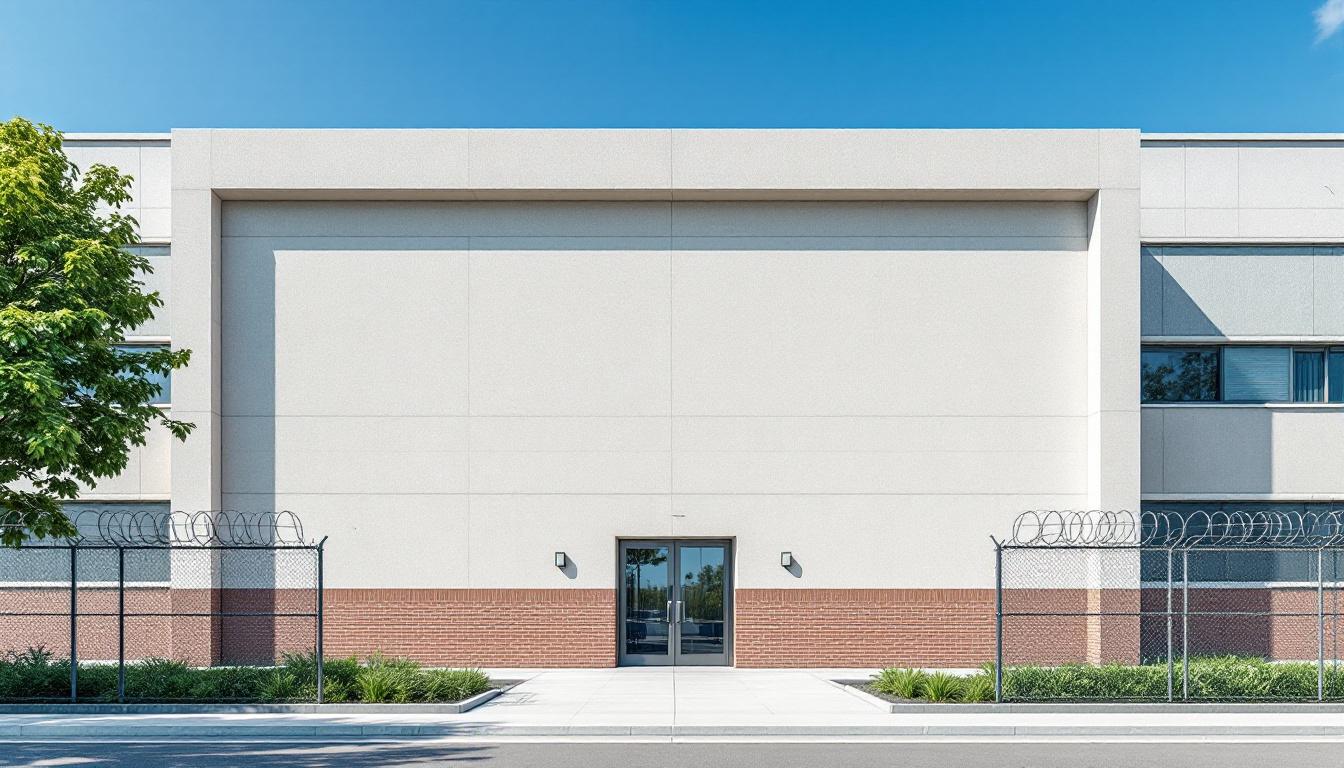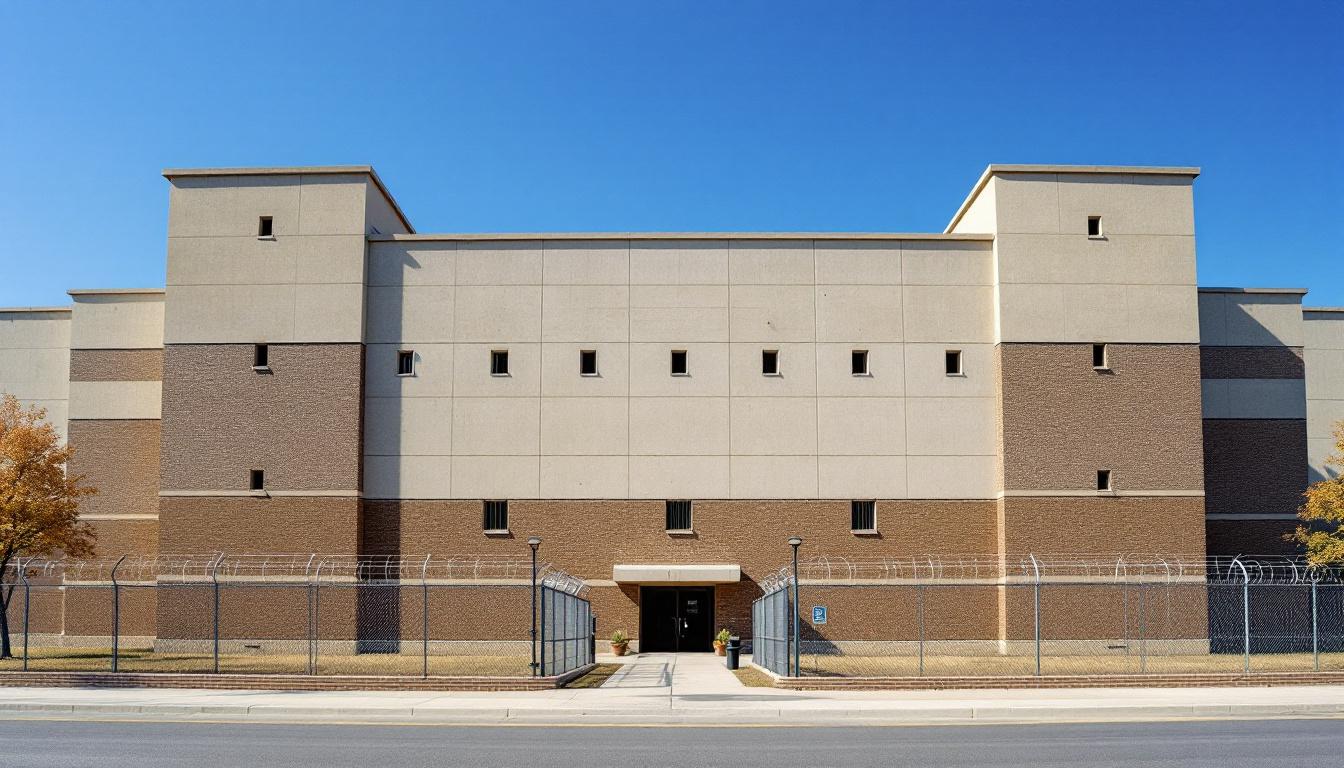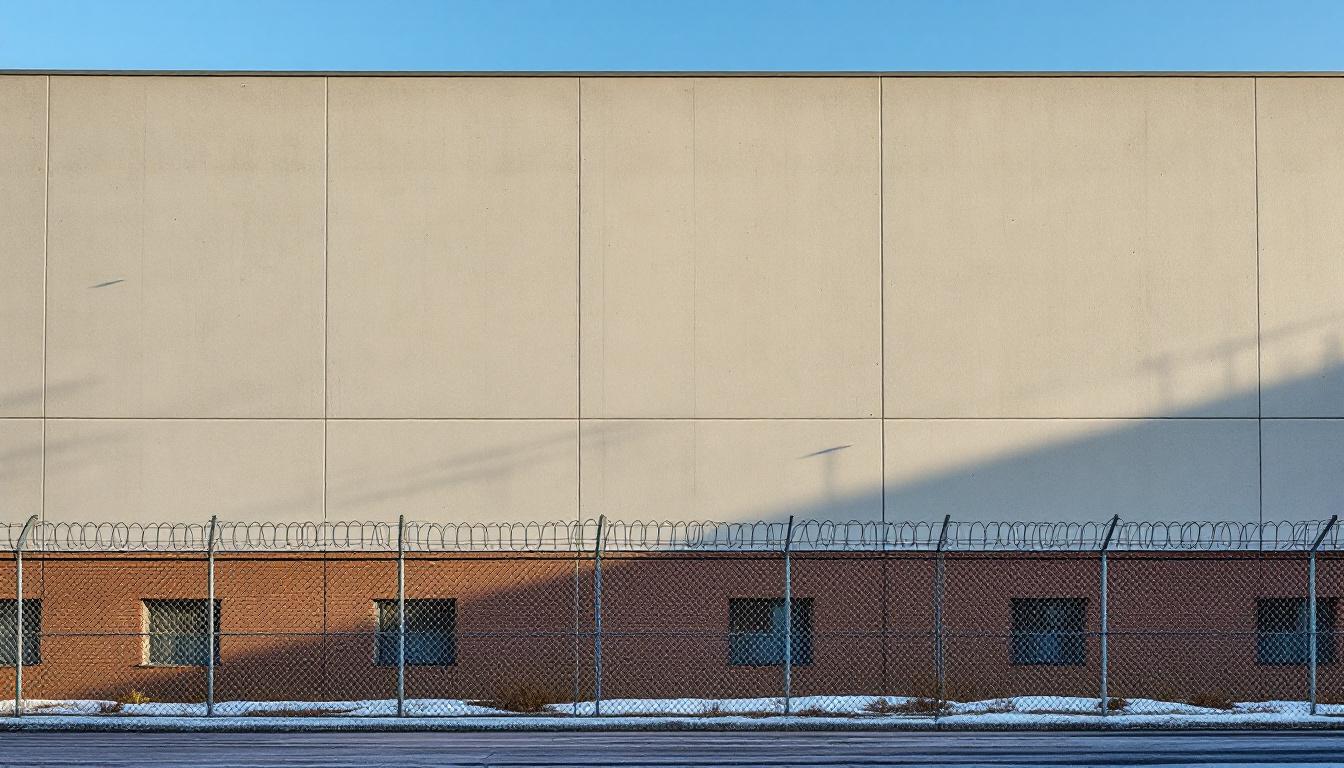
Quick Navigation
How to contact an inmate at Catoosa County Sheriff's Office
This comprehensive guide will walk you through how to connect with an inmate at Catoosa County Sheriff's Office. Follow the steps below to find an inmate and send letters and photos:
- Search for the inmate using our search tool below
- Create your account or log in to Penmate
- Write your message (up to 6,000 characters)
- Send instantly - inmates receive printed copies daily
Find an Inmate
Search for an inmate to start communicating today
Tip: You can search by first name, last name, or inmate ID number
To contact a person at Catoosa County Sheriff's Office start by searching for the person on the official facility website. Perform a search by following these steps:
- Step 1: Enter their first name and last name into the search form and click "Search"
- Step 2: Locate their inmate record
- Step 3: Write down their Inmate ID and any housing information provided
Important! Be sure to enter the person's full name. Nicknames should not be used.
How to Send Messages to Inmates

You can use your phone or computer to send emails, letters, and photos to an inmate. Messages are sent electronically to inmate tablets or kiosks at the facility. If you would like to send a message, start by searching for an inmate at Catoosa County Sheriff's Office.
Sending Photos and Postcards

A great way to send love and support to a loved one at Catoosa County Sheriff's Office is to send photos and postcards. It only takes a few minutes to send photos from your phone and it makes a huge difference. You can also mail postcards with words of support and inspiration, or design your own postcard for special moments like birthdays and holidays.
Important! Be sure not to send any explicit photos or they may not be approved by the facility. You can also use a photo printing app like Penmate to make sure your photos are printed at the correct size (4x6 or 3x5) and are mailed according to the rules and regulations of Catoosa County Sheriff's Office.
Frequently asked questions about Catoosa County Sheriff's Office
-
How long does it take to deliver a message?
If you're sending an email message your letter is usually delivered within 24-48 hours. For messages sent via mail you should expect delivery within 3-7 days. All messages will need be approved by Catoosa County Sheriff's Office.
-
How much does it cost to send a message to Catoosa County Sheriff's Office?
You can send a message free using your phone or mail a message via USPS for the price of a $0.60 stamp and envelope. You can also purchase credits or e-stamps from services starting at $1.99.
-
What services can I use to contact an inmate at Catoosa County Sheriff's Office?
Penmate
You can use Penmate to send letters and photos to an inmate from your phone. It's an easy way to stay in touch during your loved one's incarceration. Use the inmate locator to find an inmate's location and contact information, then you can send messages within a few minutes.
Securus messaging
Securus may be another option for communicating with an inmate at Catoosa County Sheriff's Office. You can create a friends and family account and purchase credits to send messages. All messages will be reviewed and must be approved by the facility.
JPay
Some county jails and state prisons may support sending messages with JPay. You must register an account with the system, find your loved one, and purchase stamps to send messages. For some locations you can also attach photos.
Smart Jail Mail
You may also check if Smart Jail Mail is available at Catoosa County Sheriff's Office. Smart Jail Mail is operated by Smart Communications and has contracted with some state and county jails. After purchasing credits, your messages and photos are sent to the facility, printed out, and then handed out to your loved one.
-
What is the mailing address of Catoosa County Sheriff's Office?
Mailing address:
Catoosa County Sheriff's Office
5842 US Hwy 41
Ringgold, GA 30736
Phone: (706) 935-2424Business hours:
- Monday: 8:00 AM – 5:00 PM
- Tuesday: 8:00 AM – 5:00 PM
- Wednesday: 8:00 AM – 5:00 PM
- Thursday: 8:00 AM – 5:00 PM
- Friday: 8:00 AM – 5:00 PM
- Saturday: Closed
- Sunday: Closed
-
What are the visiting hours at Catoosa County Sheriff's Office?
Visiting hours at Catoosa County Sheriff's Office vary by housing unit and security level. Generally, visits are scheduled on weekends and holidays, with some facilities offering weekday visits. Contact the facility directly at (706) 935-2424 or check their website for the current visiting schedule. Visits typically last 30-60 minutes and must be scheduled in advance.
-
What items are prohibited when sending mail to Catoosa County Sheriff's Office?
Prohibited items typically include: cash, personal checks, stamps, stickers, glitter, glue, tape, staples, paperclips, polaroid photos, musical or blank greeting cards, hardcover books, magazines with staples, and any items containing metal or electronics. Only send letters on plain white paper with blue or black ink. Photos must be printed on regular photo paper (no Polaroids). Always check with Catoosa County Sheriff's Office for their specific mail policies.
-
How do I send money to an inmate at Catoosa County Sheriff's Office?
You can send money to an inmate at Catoosa County Sheriff's Office through several methods: 1) Online using JPay, Access Corrections, or the facility's approved vendor, 2) Money orders mailed directly to the facility with the inmate's name and ID number, 3) Kiosks located in the facility lobby, or 4) Over the phone using a credit or debit card. Fees vary by method, typically ranging from $2.95 to $11.95 per transaction.
-
Can I schedule a video visit with an inmate at Catoosa County Sheriff's Office?
Many facilities now offer video visitation as an alternative to in-person visits. At Catoosa County Sheriff's Office, video visits may be available through services like Penmate, Securus Video Connect, GTL, or ICSolutions. Video visits typically cost $10-20 for 20-30 minutes and must be scheduled in advance. You'll need a computer or smartphone with a camera and reliable internet connection. Contact the facility for their specific video visitation policies and approved vendors.
-
What identification do I need to visit an inmate at Catoosa County Sheriff's Office?
All visitors must present valid government-issued photo identification such as a driver's license, state ID, passport, or military ID. Minors must be accompanied by a parent or legal guardian who can provide the minor's birth certificate. Some facilities require visitors to be on the inmate's approved visitation list, which may require a background check. Contact Catoosa County Sheriff's Office for specific ID requirements and visitor approval procedures.
-
How can I find out an inmate's release date?
To find an inmate's release date at Catoosa County Sheriff's Office, you can: 1) Use the online inmate search tool if available, 2) Call the facility's records department, 3) Contact the inmate's case manager or counselor, or 4) Have the inmate provide this information during a call or visit. For privacy reasons, some facilities only release this information to immediate family members.
Facility Overview
Contact Information
Catoosa County Sheriff's Office5842 US Hwy 41
Ringgold, GA 30736
Phone: (706) 935-2424
Official Website
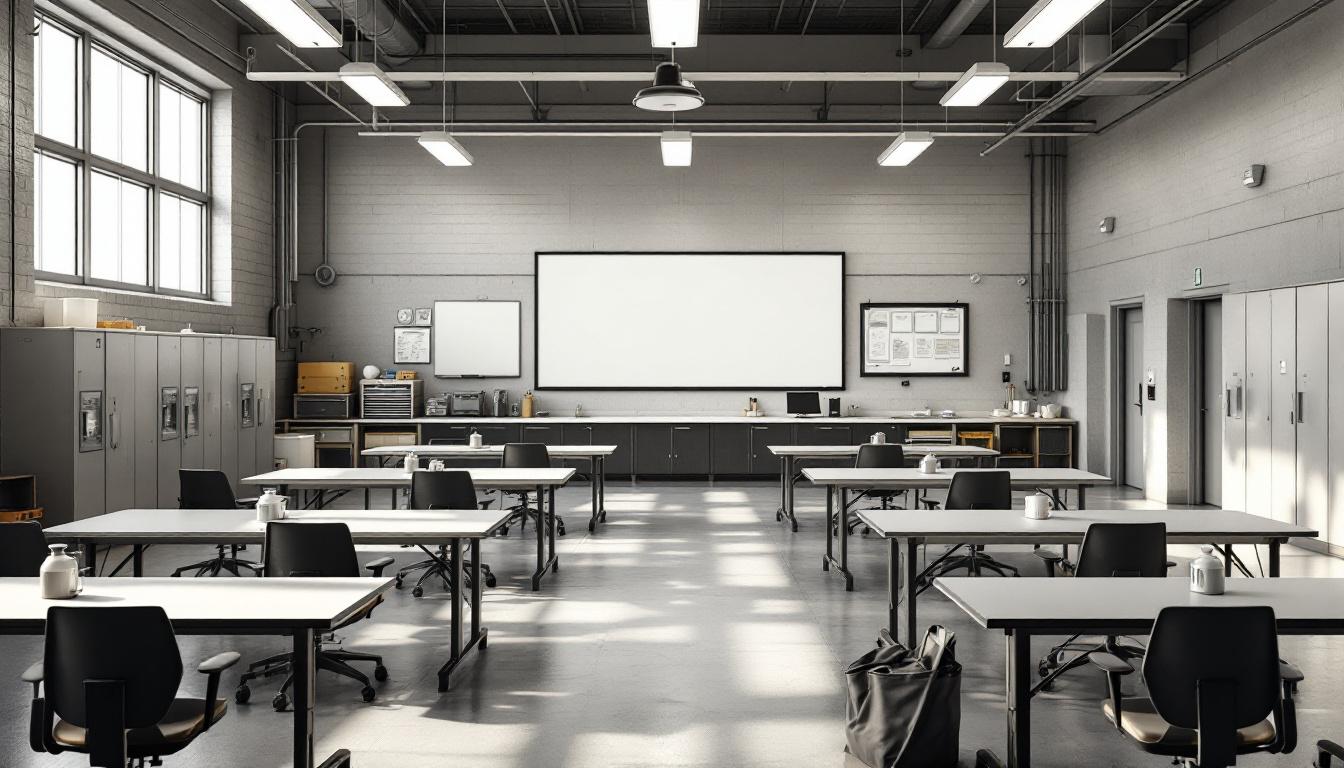
About Catoosa County Sheriff's Office
Serving the community of Ringgold and surrounding areas, Catoosa County Jail, GA operates as a vital component in the region's public safety infrastructure while maintaining a commitment to both security and rehabilitation. This GA correctional facility balances the dual responsibilities of protecting the community and providing meaningful support services to those in custody. Located in the heart of northwest Georgia, the facility typically offers various programs designed to address the underlying factors that may contribute to criminal behavior, while ensuring inmates services meet basic needs and promote positive outcomes upon release.
The facility generally provides educational opportunities, substance abuse counseling, and vocational training programs that help prepare individuals for successful reintegration into society. Mental health support and medical care are typically available to address the comprehensive needs of the inmate population. As part of Georgia's broader correctional system, this county jail often collaborates with local organizations and agencies to provide resources that may include job placement assistance, family reunification support, and community service opportunities that benefit both participants and the wider Ringgold area.
Programs & Services
Personal transformation through structured programming forms the cornerstone of rehabilitative services at Catoosa County Jail, where inmates encounter opportunities designed to address underlying challenges while building essential life skills. The facility's approach emphasizes comprehensive support that recognizes each individual's capacity for growth and positive change. Through carefully coordinated services, participants engage in meaningful activities that foster self-reflection, skill development, and preparation for successful community reintegration.
Educational services typically encompass basic literacy instruction alongside more advanced academic programming, allowing inmates to address educational gaps while working toward personal goals. These learning opportunities often include individualized instruction tailored to varying skill levels and learning needs. Moreover, vocational training services may provide hands-on experience in practical trades and employment-ready skills, equipping participants with marketable abilities that enhance their prospects for sustainable employment upon release. Such programming frequently emphasizes both technical competencies and workplace readiness skills essential for long-term success.
Faith-based services offer spiritual guidance and community connection for those seeking meaning and purpose through religious practice and study. These services typically provide regular worship opportunities, pastoral counseling, and faith-centered programming that supports moral development and personal reflection. Additionally, peer support groups create structured environments where inmates can share experiences, develop interpersonal skills, and build supportive relationships with others facing similar challenges. Through these collaborative therapeutic services, participants often develop enhanced communication abilities, emotional regulation skills, and strategies for maintaining positive behavioral changes beyond their incarceration period.
Daily Life & Visitation
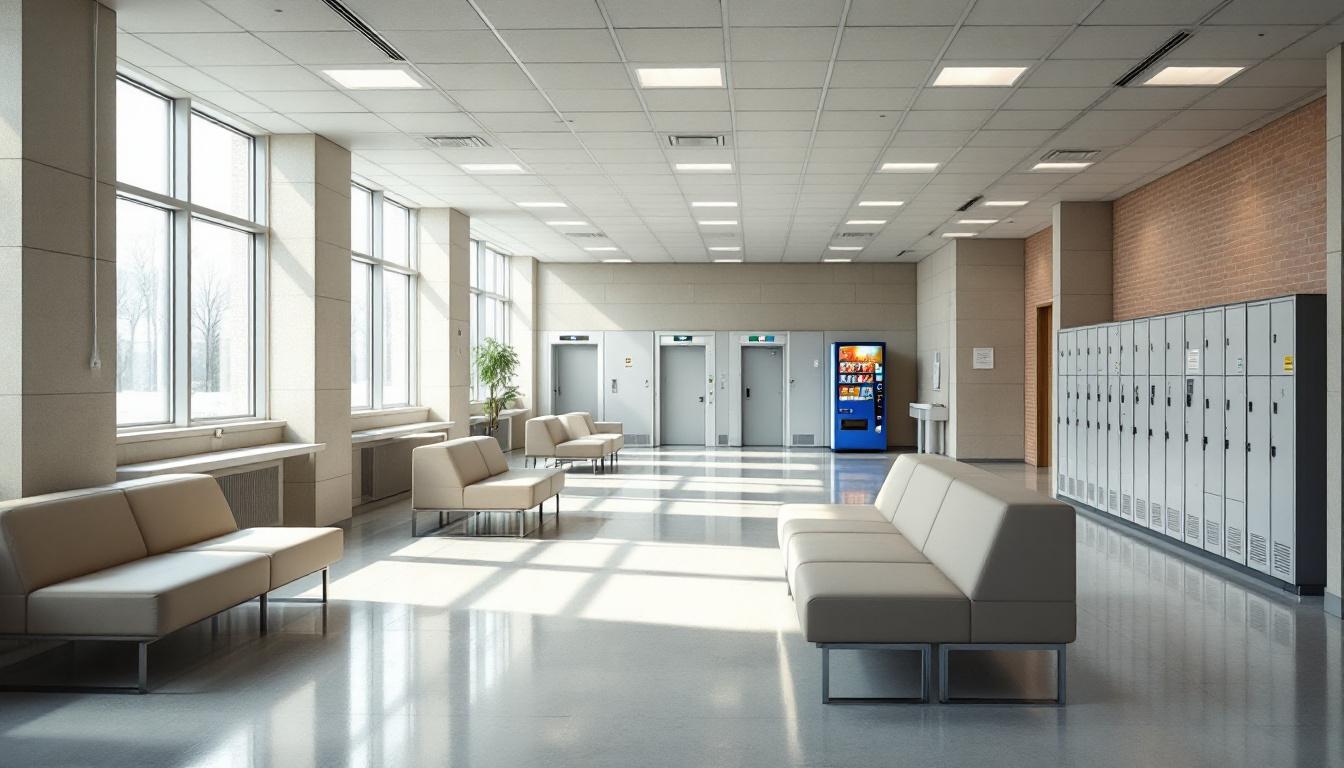
The concrete walls and fluorescent lighting of Catoosa County Jail create an institutional atmosphere where inmates must quickly learn to navigate a highly structured environment governed by strict schedules and security protocols. Within this controlled setting, daily life currently revolves around predetermined routines that begin with early morning wake-up calls and continue through carefully monitored meal times, programming sessions, and evening lockdown procedures. The facility's housing units typically accommodate multiple inmates per cell or dormitory-style areas, where personal space becomes a premium commodity that residents must learn to respect and share.
Living accommodations generally consist of basic furnishings including metal bunks, small storage areas for approved personal items, and shared bathroom facilities that serve multiple inmates throughout each housing unit. Moreover, the dining arrangements typically involve scheduled meal times in a common area where inmates receive standardized portions, though commissary privileges may allow residents to supplement their diet with approved snacks and beverages when funds are available. The environment requires inmates to adapt to limited privacy, constant supervision, and the challenge of maintaining personal hygiene and cleanliness within the constraints of institutional living.
Programming schedules often provide structure through educational classes, substance abuse counseling, and work assignments that may include kitchen duties, facility maintenance, or laundry services. Whereas recreation opportunities typically consist of scheduled time in designated areas for physical exercise, television viewing, or reading materials from the facility library, inmates must also navigate visitation policies that generally allow family contact through scheduled in-person visits or monitored phone calls. These connections to the outside world often serve as crucial lifelines that help residents maintain relationships and prepare for their eventual reintegration into the community.
Ready to Connect?
Start communicating with your loved one today
Search for an Inmate
